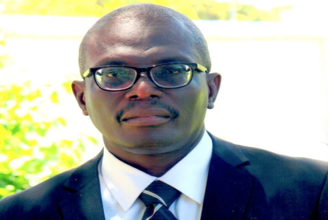Often a visit to our family practitioner or internist puts us in anticipation of getting some advice about improving our health. In the realm of general health, the advice is often to eat healthier foods, lose some weight, and exercise more. After all, these are three modifiable lifestyle factors that can have a positive impact on our health.
How Useful Is This Advice?
Instead of heeding what doctors say, we often turn to our friends and neighbors for advice and support. Research suggests that people often prefer advice from a friend that is experiencing something similar. Why would that be? The answer speaks to several problems facing doctors when they are trying to help their patients by making some suggestions for change.
Sometimes, the doctor is perceived as detached, and not aware of the lifestyle factors that each person is experiencing. That leaves the person without a specific direction or guidance regarding the skills needed to make some changes.
Each person has their own unique challenges, including emotional responses, previous habits, potential for a support system, and knowledge of healthy foods and how to exercise.
Each person will also present with their own health beliefs, perceived benefits of making health changes, and beliefs about themselves and their ability to make changes.
Doctors at a Disadvantage
When considering how doctors are perceived, they are at a distinct disadvantage. They are probably constrained by the amount of time they can spend fleshing out a useful plan for making health changes. It may also be that physician training does not include much about nutrition or exercise.
In both cases, some broad guidelines can be given, but not much else. Little wonder that patients can easily tune out when the advice being given is not comprehensive and specific to their own situation.
Getting Beyond Advice
How about when a doctor is able to refer patients to other professionals for programs that can address health changes in more depth? Much research has been devoted to various approaches that show some success, at least in the short term.
For example, nutritionists or dietitians may be used to help direct a change in eating patterns. Mindfulness techniques have been used in programs to combat obesity. Patients may be sent to a physician that specializes in weight loss. Patients may be referred to a personal trainer or a gym with a specific program to help people get started and stay engaged with exercise.
Many of these programs fall short after an initial period of positive change. It appears that the most successful programs offer in-depth habit change approaches that last at least a year. Most include dissemination of appropriate information, regular follow-ups, and working with the person to develop good social support for the change.
Doctors Should Keep Giving Advice
Does all this mean it is pointless for doctors to advise their patients to eat more healthy foods, lose weight, and exercise more?
The answer is no.
Even though many individuals may not be ready to make the changes recommended by their doctor, some are. They may be motivated by a recent health scare, awareness of their benefits (and those around them), or wanting to feel better and move better. In this case, a gentle nudge from their doctor may be just what they need to get them started. Even without referral to another professional, some may begin to seek out solutions on their own.
When giving health change advice, it would be useful for the doctor to follow up with some questions about the patient’s current lifestyle and potential to make some of the changes suggested. This would help in making specific referrals to programs appropriate for that person. But, even when that isn’t feasible, it is still important to get the message out.
















